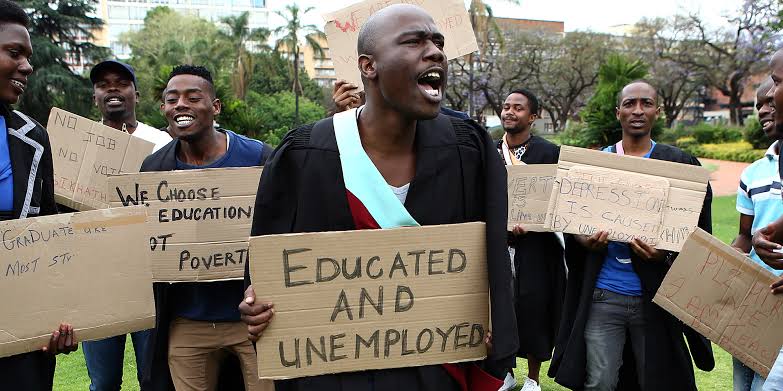The Nigerian Bureau of Statistics (NBS) has said a total of 21.7 million Nigerians are unemployed as of June 2020.
This is contained in a Labour Force Statistics report published on Friday, August 14.
According to the report, the NBS said the unemployment rate in Nigeria increased from 23.1% in Q3 2018 to 27.1% in Q2 2020 adding that the number of people in the labour force was estimated to be 80,291,894, only 58,527,276 were employed at the time of the survey.
The report revealed that the numbers were a drop from almost two years ago when the number of people in the labour force was 90.5 million, and the number of employed was 69.5 million.
It added that of the 58.5 million people employed, 35.5 million worked full-time (more than 40 hours per week), while 22.9 million were underemployed (worked between 20 and 29 hours per week).
The unemployment rate among rural dwellers rose from 23.9% in Q3 2018 to 28% in Q2 2020, while the rate among urban dwellers rose from 21.2% to 25.4%.
Underemployment rates also rose to 31.5% for rural dwellers, and 23.2% for urban dwellers.
Of the 21.7million unemployed people, 12.4 million worked between one to 19 hours, while 9.4 million did absolutely nothing.
The rates of unemployment and underemployment rose highest among young people between 15 and 35 years of age.
While the unemployment rate among youths rose from 29.7% to 34.9%, the underemployment rate rose from 25.7% to 28.2%.
Imo State reported the highest rate of unemployment with 48.7%, followed by Akwa-Ibom (45.2%), and Rivers (43.7%).
The state with the lowest unemployment rate was Anambra with 13.1%.
Unemployment and underemployment rates vary across states according to the nature of economic activity predominant in each state, according to the report.
The NBS noted that a rise in the unemployment rate is not entirely equivalent to an increase in job losses.
It could be because people who previously lost their jobs are in search of new ones, or people previously outside the labour force (like new graduates) decided to join in search of new jobs or a combination of both.
Thank you for taking your time in reading through our Journal Today. We wish to always provide you with qualitative Stories as far as GOOD-JOURNALISM is CONCERN. But good journalism costs a lot of money and only good journalism can ensure the possibility of a good society, accountability democracy, and a transparent government.
For continued free access to the best investigative journalism, we ask you to consider subscribing to our daily news updates.



